We’re glibbets, which rhymes with the froggy ribbets, and we have a literary canon that most of you won't read. What’s a glibbet? A glibbet is a member of the GLBT community: Gay, Lesbian, Bisexual, and Transgender. Like the jingle for the old Women’s Lib-co-opting Virginia Slims “fags” (as the Brits call them), “we’ve got our own set of classics now, baby – we’ve come a long, long way.” The trouble is, straight people won't be caught dead taking any self-segregated GLBT lit college classes, and after you graduate, it's hopeless. You people generally have to be shamed into reading gay-themed books by aren’t-afraid-to-be-assholes-about-it assholes like me, who enjoy pointing out that while we glibbets read the work of straight writers all the time, you straight folks - particularly men - generally continue on your merry way without bothering to read our work at all. (Really, fellas: would you take a novel with a shirtless guy on the cover out to the park for an afternoon read, especially if your ulterior motive is to pick up some some lovely, equally bookish gal? This is particularly true the more muscles you have, because face facts: we generally have better bodies and haircuts than you do, and if you're lying on the grass looking studly in your tank top reading gay fiction, you'll be a babe magnet, all right, but the babes will all be guys.)
So consider this Top 10 list a big ol' guilt trip. I’ve included only gay men’s fiction. Some equally irritated lesbian can do one on gay women's lit, and if she doesn't step up soon I'll do it myself and incur the wrath of the Sapphics as well.
After you’ve read the list – or maybe you could just skip the list – tell me off. Inform me that I’ve missed the boat: I’m too old; youth today are post-gay; labels don’t matter, and all that self-serving, blinders-on bullshit. Remind me of the books I’ve forgotten or teach me the ones I don't know. I started this fight. Wanna make something of it? No shirts, no shoes, but most of all, no shirts. Fighting is so much hotter without shirts.
Self-conscious yet?
![]() 'The Lost Weekend' by Charles Jackson
'The Lost Weekend' by Charles Jackson
Yes, this is the book that inspired Billy Wilder’s Oscar-winning 1945 film about writers’ block and alcoholism. But what do you suppose makes Jackson’s original novel’s lead character, a novelist named Don Birnham, a blocked alcoholic? He’s a closet case. Wilder and his co-screenwriter, Charles Brackett, eschewed that pesky little problem and left the root cause of Birnham’s dipsomania unstated. Why? They had no choice; it would have violated the Production Code, though they do include a hint in the form of a creepy Bellevue night nurse (Frank Faylen). But Jackson, who wrote the explicitly gay novel The Fall of Valor, includes a vital passage about Birnham’s attraction to another guy in college that leaves no doubt about his underlying psychology. It’s a great novel made even better by its unexpected gay subtext.
![]() 'The City and the Pillar' by Gore Vidal
'The City and the Pillar' by Gore Vidal
This landmark 1948 novel by the prolific, brilliant, and mouthy “homosexualist” author (his absurd word, not mine) is frank and candid but still ends with a lie: the main character kills the object of his affections when in fact what Vidal really wanted the protagonist to do was fuck his brains out. But that would have been beyond the pale in the late 1940s, when murder was so much more acceptable than anal penetration (and probably still is in Mississippi). Nevertheless, it took guts for an ambitious young writer like Vidal to publish such an unapologetic look at gay men’s lives at the start of his career, and it reads just as well today as I imagine it did at the time it was published, though it can’t be nearly as shocking.
![]() 'Dancer from the Dance' by Andrew Holleran
'Dancer from the Dance' by Andrew Holleran
Beautiful men, plentiful sex, one of the world’s finest beaches as a backdrop – gay life in the 1970s in Fire Island Pines is idyllic in Andrew Holleran’s (forgive me) seminal novel, but only to a point. Even before AIDS sent the giant disco ball crashing down, Holleran – who has the least sense of humor in all of gay literature – found a core of sadness and despair in the midst of the thumping, humping party. Holleran’s name is actually Eric Garber; he reportedly wrote under a pseudonym to hide his sexual orientation from his mother. This pathetic detail shouldn’t undermine the author’s fine work, however; Dancer from the Dance is the golden era of gay liberation’s greatest chronicle.
![]() 'Maurice' by E.M. Forster
'Maurice' by E.M. Forster
Written at the height of Forster’s powers as a novelist (he started it in 1913), Maurice wasn’t published until after Forster’s death in 1970. Forster was quite plainly afraid of what it would do to his reputation. He was correct to be concerned. The piggish Cynthia Ozick opined that she’d loved Forster’s novels until she learned he was gay, at which pointed she decided that she saw through them all. (Oh, Cindy! With a mug as butt-ugly as yours, you should know better than to make such inane and superficial judgments. I don't read your books because you're a meishkeit; I don't read them because you're a fucking self-righteous bigot.) In fact, Maurice is a great gay love story with a happy ending. That some still find it hard to believe – lasting love not only between two men but between men of different classes! how entirely un-British! - is testimony not to Forster’s failure as a novelist but to some dull-witted readers’ failures of imagination.
![]() 'American Studies' and 'An Arrow’s Flight' by Mark Merlis
'American Studies' and 'An Arrow’s Flight' by Mark Merlis
Mark Merlis is the greatest unsung novelist in America. If he was straight he’d have book awards up the wazoo; because he writes about guys who take it up the wazoo, he can’t get a book deal. His novels are purely brilliant. American Studies is a riff on the story of F. O. Matthiessen, the Harvard scholar who essentially invented the discipline that serves as the novel’s title and was hounded to suicide by HUAC; An Arrow’s Flight is an unlikely but hilarious and yet enormously moving modern retelling of Sophocles’ Philoctetes, starring Pyrrhus as a red-headed gay stripper. f you don’t read them both you’re a fool.
![]() 'Gods and Monsters' by Christopher Bram
'Gods and Monsters' by Christopher Bram
Before the screenwriter-director Bill Condon turned Bram’s novel into an Oscar-winning film, it was called Father of Frankenstein; the publisher wisely retitled it to get a bigger readership. It’s worth a read even if you’ve seen the movie, for Bram’s psychological realism has never been sharper, despite the fact that this tale of the real Hollywood director James Whale (who made Frankenstein and The Bride of Frankenstein and Show Boat, among other great movies) and his gardener is entirely fictional. It’s a knowing, sympathetic, and at times comical look inside a creative but increasingly frustrated gay man’s mind as his health declines in old age, though you’ll be hard pressed to imagine Whale as anyone other than the perfectly-cast Ian McKellen.
![]() 'A Boy’s Own Story' by Edmund White
'A Boy’s Own Story' by Edmund White
Eric Garber leads the list of humorless gay writers, but Edmund White comes in as a close second. But one doesn’t read White for laughs. One reads him for the beauty of his sentences, their craft and their care. A Boy’s Own Story is White’s most accessible novel. (Steer clear of the oh-so-precious Caracole.) Loosely based on his own adolescence, it’s a common enough tale to resonate with many of us regardless of our sexual orientation and particular enough to be solely about the precocious, “cornholing” boy who would become the masterful author of 12 novels, 3 biographies, 3 memoirs, 1 play, and many assorted works of nonfiction, as well as a member of the American Academy of Arts and Letters and an Officier de l’Ordre des Arts et des Lettres. Tough to beat that.
![]() 'Giovanni’s Room' by James Baldwin
'Giovanni’s Room' by James Baldwin
Baldwin wrote this classic gay men’s novel in Europe in the 1950s after realizing that he would never be treated simply as a writer in America; he’d always be a Negro writer. He then threw all caution to the wind and wrote Giovanni’s Room, a novel about gay men – one American, one Italian, both living in Paris. It doesn’t end well. One of them gets his head chopped off. (Je te plumerai la tête! Et la tête, et la tête! Alouette! Alouette! Oh, oh, oh, oh!) Still, it’s both elegant and raw, romantic and honest - one of Baldwin’s greatest achievements. And despite its depressing ending, it still managed to give ‘50s gay readers hope, if only because it affirmed our existence on the planet.
![]() 'The Line of Beauty' by Alan Hollinghurst
'The Line of Beauty' by Alan Hollinghurst
One of the few gay novelists to have broken through the mirrored ceiling (it’s like the glass ceiling is for women, only gay men are so narcissistic, dontcha know, that all we see is ourselves), Alan Hollinghurst won the Man Booker prize for The Line of Beauty, just one of several Hollinghurst novels the straight world takes seriously as genuine literature. That’s not only because it is genuine literature; it’s because Hollinghurst is British (they write better than Americans), went to Oxford (unimpeachable pedigree), edited The Times Literary Supplement (no shabby little GLBT magazines on his resume), and has a most distinguished-looking goatee. All jokes aside, this is some serious lit. Read it, and if you have a problem with the fact that its protagonist sucks cock, get over yourself, Louise. Nobody’s forcing one down your throat. Then again, maybe someone should. You might not be so hung up.
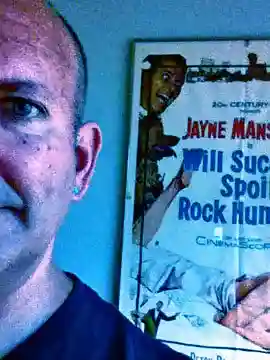
About the author
Ed Sikov is the author of 7 books about films and filmmakers, including On Sunset Boulevard:; The Life and Times of Billy Wilder; Mr. Strangelove: A Biography of Peter Sellers; and Dark Victory: The Life of Bette Davis.
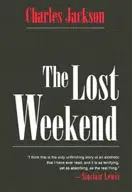 'The Lost Weekend' by Charles Jackson
'The Lost Weekend' by Charles Jackson
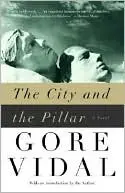 'The City and the Pillar' by Gore Vidal
'The City and the Pillar' by Gore Vidal
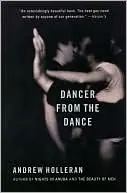 'Dancer from the Dance' by Andrew Holleran
'Dancer from the Dance' by Andrew Holleran
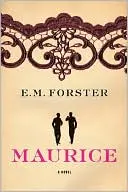 'Maurice' by E.M. Forster
'Maurice' by E.M. Forster
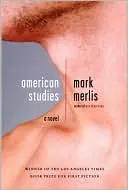 'American Studies' and 'An Arrow’s Flight' by Mark Merlis
'American Studies' and 'An Arrow’s Flight' by Mark Merlis
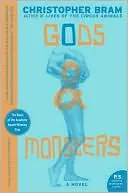 'Gods and Monsters' by
'Gods and Monsters' by 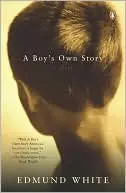 'A Boy’s Own Story' by Edmund White
'A Boy’s Own Story' by Edmund White
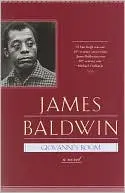 'Giovanni’s Room' by James Baldwin
'Giovanni’s Room' by James Baldwin
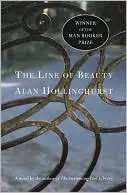 'The Line of Beauty' by Alan Hollinghurst
'The Line of Beauty' by Alan Hollinghurst








